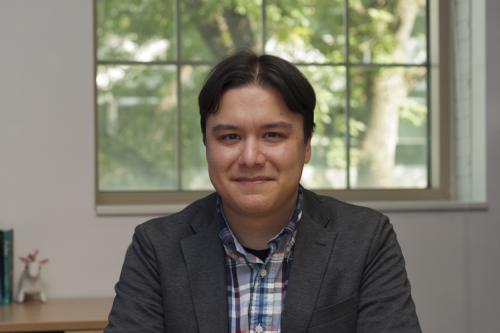

Degree: BA, MSci (2009) PhD (2013) University of Cambridge
Hometown: Colchester, England (“England’s oldest recorded town”)
Year started at Iowa: 2017
What is your project?
I am trying to set up a research program that studies the theory of chemical bonding at the interface with informatics. With my group, we are trying to build a diverse group of individuals with their own projects, goals and ambitions. We are working together to learn and grow.
What makes you passionate about your work?
I think it’s awesome that we can design catalysts on computers that might lower the amount of energy used by the chemical industry.
What do you enjoy most about your work?
I enjoy solving puzzles using math and computers. Mentoring young scientists is also pretty amazing, especially in a chemistry department where people do not necessarily have a background in my area of research scholarship.
What was I doing before UIowa?
I was a Postdoctoral Fellow at the Massachusetts Institute of Technology with Prof. Troy Van Voorhis. I worked on using density functional theory (DFT) calculations to model electrochemistry, quantum dots, and biochemistry. Before that, I was Postdoctoral Fellow at Rice University with Prof. Gustavo E. Scuseria. I worked on developing coupled cluster (CC) theory.
Why UIowa?
When I came for interview, I felt like I was truly welcomed by a Faculty with incredible collegial warmth. Since arriving, I have felt extremely well-supported by these colleagues. The job also offered a unique opportunity in joining the Iowa Informatics Initiative, which is a bold, campus-wide initiative designed to foster new collaborations to open new research and scholarship opportunities.
Role in Group?
Group leader
What are your future plans?
As a new Assistant Professor in this department, I’m trying to fit into this new and wonderful community I’ve found myself in.
Why is it interesting?
Back when I was in freshman chemistry, I always used to wonder about the “why” of chemical bonding and reactivity. I enjoy that we are able to model things we never dreamed of even back then, thanks to advances in computing and data science.